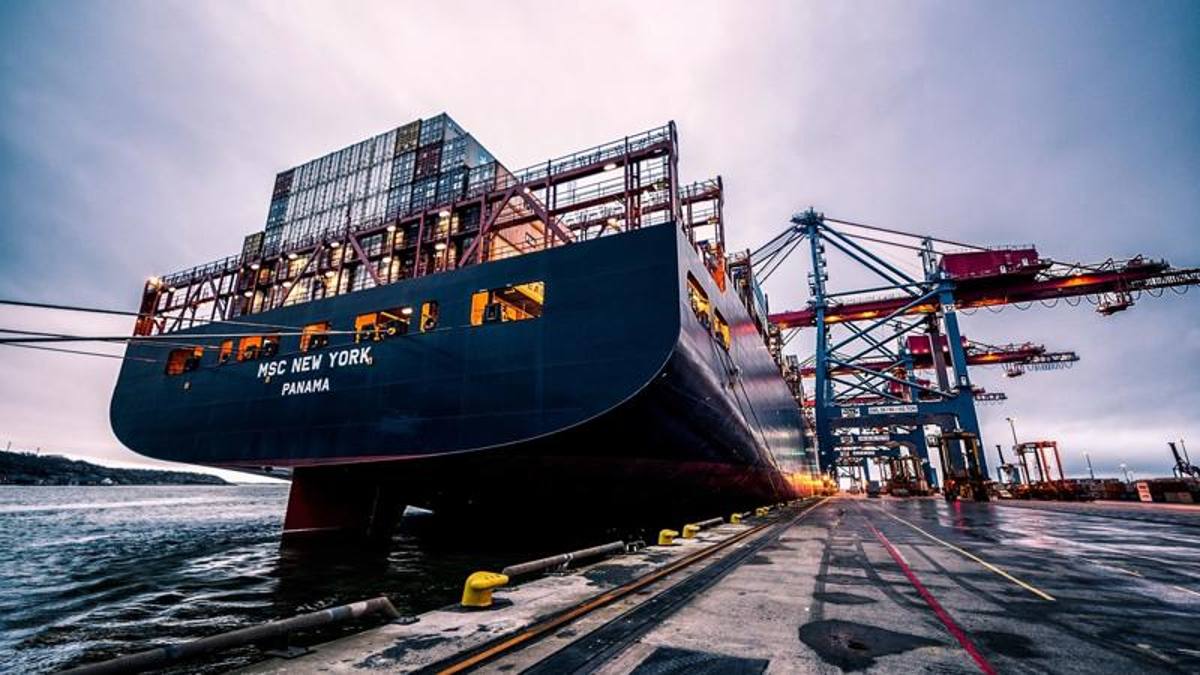Over 80% of goods travel by sea inside containers. The auto sector is no exception and when, as now, the shipping system goes into crisis with delays and soaring costs, the effects can be severe.
Could the crisis affecting maritime navigation and the port system have repercussions on the automotive sector? Long lead times and skyrocketing costs are the result of several factors, from the pandemic to the grounding of the Ever Given container ship in the Suez Canal last March, which add to the structural problems that slow down activity in many seaports. The effects could be felt in a sector that has not yet digested the production delays triggered by the lack of chips and raw materials. Why is there talk of a crisis for global shipping? There are several elements which, added together, are creating problems. In fact, however, it is the lack of containers that has caused a surge in rental prices: the average price to rent a 40-foot container (i.e. just over 12 meters) in length. it went from $ 1,400 in March 2020 to over $ 9,500 today. Between China and the east coast of the United States, $ 3,000 to $ 20,000. And then the clogging of ports, which causes a chain slowdown in the landing and unloading of ships. The pandemic has further complicated the picture: the skyrocketing online shopping has forced companies to anticipate orders for new raw materials, clogging the supply chain. But the initial stop had interrupted the normal circulation of the containers, whose empties must return to where the goods leave otherwise everything stops.
SLOW DOWN IN PRODUCTION AND INCREASING PRICES
—
A combination that causes delays in the entire supply chain of goods, resulting in shortages of products and increase in relative prices. Two other related, and not negligible, effects are the slowdown imposed on production and the rise in inflation in various countries. The automotive sector is heavily dependent on logistics, almost all manufacturers have plants in different points of the globe and supplying factories with raw materials or semi-finished products on time is vital. Otherwise the chain stops, even production and thousands of vehicles cannot be completed and delivered to customers. Consequences made even heavier by the “just in time” strategy, adopted by many companies globally, which assumes that the material necessary for the assembly of the products is delivered “just in time”, in order to reduce the materials in storage and therefore cut expenditure on storage infrastructures. A delicate mechanism that jams if there are delays in the supply chain, exactly what we have seen in recent months with the chip supply crisis. A crisis that seemed to have reached its peak, moving towards a solution. But the port crisis could trigger new problems for an industry grappling with the biggest technological change in history, and the bill could be steep.
GIGANTISM: A PROBLEM FOR PORTS
—
There is a fact that reflects the importance, and therefore the delicacy, of the sea transport system: more than 80% of the volume of goods transported around the world travels in containers. This is due to intermodal transport, which thanks to the standardization of containers allows them to be stowed with goods and moved on ships, trains or trucks in a simple and fast way. It goes without saying that the trend is to build ever larger ships, capable of carrying as many containers with a single journey, which, by touching more ports, handles an enormous amount of goods. For example, Ever Given, which blocked the Suez Canal for a week in March, can carry up to twenty thousand containers twenty feet in length (about six meters). It is part of the Ultra Large Container Ship (Ulcs) group, ships over 400 meters long and 60 meters wide; there are 85 currently operational, another 8 are under construction. Dimensions that, however, do not allow all ports to accommodate them. Indeed, only a few seaports have the facilities to do so, the others will have to invest heavily if they do not want to be cut off from the routes of the giants of the sea. A problem that in the years to come will reward the large shipping companies at the expense of the smaller ones.
31 August – 11:33
© breaking latest news
.
